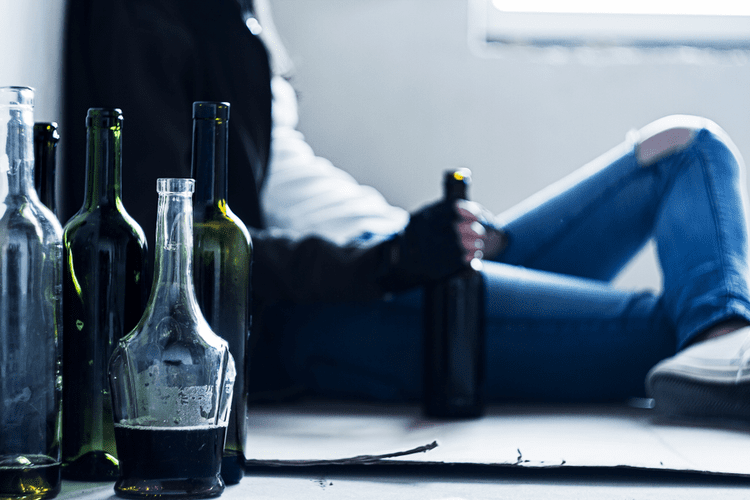The shape of the blood alcohol curve is influenced by many factors including suchvariables as body size, gender, build, amount and type of beverage ingested,duration of drinking, fatigue, and the presence and type of food. Thesevariables are also major determinants of the timing and peak of the bloodalcohol curve. People with depression who drink alcohol often start to feel better within the first few weeks of stopping drinking. If you try this and feel better, it’s likely the alcohol was causing your depression. If your symptoms of depression continue, speak to your GP for help. Many people with AUD do recover, but setbacks are common among people in treatment.
Overview of Depressive Disorders
Alcohol-induced depressive disorder is a depression-like condition that happens only when drinking alcohol and shortly after withdrawal. A 2019 review reveals that depressive disorders are the most common mental health disorders in people with AUD. Major depressive disorder involves persistent and prolonged symptoms, but depression, in general, takes on many different forms. Depressive symptoms can result from life stressors, mental health conditions, medical conditions, and other factors. If you’re battling depression, alcohol isn’t going to make you feel better. It may temporarily suppress feelings of isolation, anxiety, or sadness, but that won’t last.

Treatment for Alcohol Misuse
The individualmust engage in the behavior of drinking before the genetic predisposition canset the stage for alcoholism to develop. The substantial variability in the course of co-occurring AUD and depressive disorders may reflect discrete underlying mechanisms, requiring https://netref.ru/lajfhaki/hochu-spat.html distinct treatment approaches. For example, AUD that develops after the onset of a depressive disorder and is characterized by coping motives for alcohol use may differ critically from a depressive disorder that develops following chronic alcohol administration.
Changing your drinking
We provide free and confidential services, without judgement, to adults and young people facing challenges with drugs and alcohol. If you have questions, need advice, or just want to talk, we’re WithYou. U.S. Magistrate Judge Robert Numbers reached the same conclusion that July in United States v. Alston, which also involved a marijuana user charged with violating Section 922(g)(3). “The government has failed to establish that historical laws regulating the mentally ill, the intoxicated, or the dangerous are sufficiently analogous to § 922(g)(3),” Numbers wrote. “The government concedes that its ‘review of early colonial laws has not revealed any statutes that prohibited [firearm] possession’ by drug users,” the 8th Circuit noted. The 8th Circuit assumed that drug users are analogous to “lunatics” and people of “unsound mind” who are “mentally ill and dangerous.” But the U.S.

If you’re trying to cut down or stop drinking, research shows some antidepressants can increase your risk of relapsing. The NHS website has more information on alcohol and antidepressants. Moreover, drinking alcohol to cope with anxiety and depression might actually worsen these issues over time, says Brandon. A 2019 study found highly shy people experienced reduced anxiety while drinking, but their anxiety increased the day after a night of drinking.
- Studies have shown that, among people abusing alcohol, somewhere between 30 percent and 50 percent suffer depressive symptoms at any given time.
- Signs to look out for include things like continuous low mood or sadness, feeling hopeless and helpless, having no motivation or interest in things, and – for some people – thoughts about harming themselves.
- A better understanding of the heterogeneity within this population will inform more personalized treatment approaches and might ultimately improve treatment response.
- Consequently, many scientists try to develop nonanimal models using cellcultures or computer simulations.
Depression and Alcohol Use Disorder: Are They Connected?
Byproducts of this metabolism are highly reactivecompounds called free radicals. Free radicals react withproteins, lipids, and DNA to cause cell damage or even cell death.Furthermore, drinking alcohol can cause the bacteria lining the gut torelease endotoxin (a component of bacterial outer cellmembranes). Endotoxin in turn activates certain liver cells to a highermetabolic http://www.ukrainehotelsonline.com/en/Travel-News/rak-pecheni-simptomy-i-lecheniye-bolezni.html state, which generates more free radicals and leads to celldamage. Tolerance refers to the body’s ability to adapt to chronicalcohol use. This means that higher BACs are needed to produce intoxication.Both alcohol abusers and alcoholics can display tolerance. BACs that canrender nonabusers unconscious can leave abusers and alcoholics appearingnearly sober.
Most antidepressants require taking a consistent, daily dose to maintain a constant level in your system and work as intended. Stopping and starting your medications can make your depression https://coingeneratorfree.info/learning-the-secrets-of-11 worse. If you’re worried that you might have alcohol use disorder, don’t try to quit cold turkey on your own. Taking little steps to boost your mental health can help you to feel better.
- The process by which neurons transmit messages to other neurons, muscle cells, or gland cells.
- If you have questions, need advice, or just want to talk, we’re WithYou.
- Humans vary widely in their ability to absorb and eliminate alcohol.
- You might begin drinking more regularly in order to feel better or forget about those unwanted emotions and memories.
- The shift, which would still require ultimate approval from the White House, could broaden access to use marijuana in the United States and may ease restrictions to conduct research on the drug.
Inpatient Care
This may be because they ‘self-medicate’, meaning they drink to deal with difficult feelings or symptoms. People living with alcohol use disorder (AUD) typically find it difficult to control their alcohol use or stop drinking when they try. This mental health condition can lead to ongoing physical and mental health symptoms, along with unwanted consequences at work, school, or in your personal relationships. Continuing to drink despite clear signs of significant impairments can result in an alcohol overdose. An alcohol overdose occurs when there is so much alcohol in the bloodstream that areas of the brain controlling basic life-support functions—such as breathing, heart rate, and temperature control—begin to shut down. Individuals with mental health conditions may be more likely to use alcohol as a treatment.


